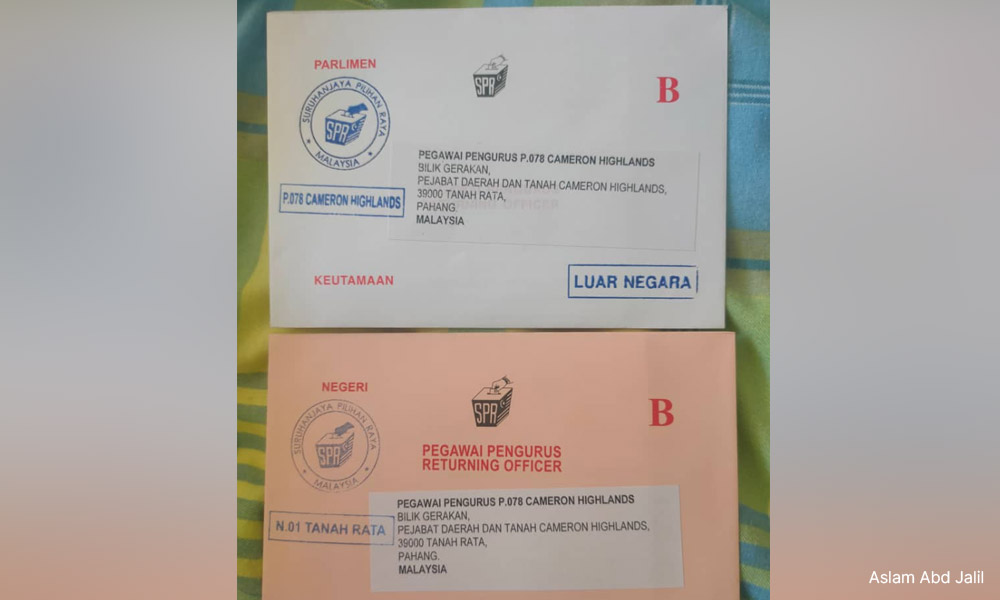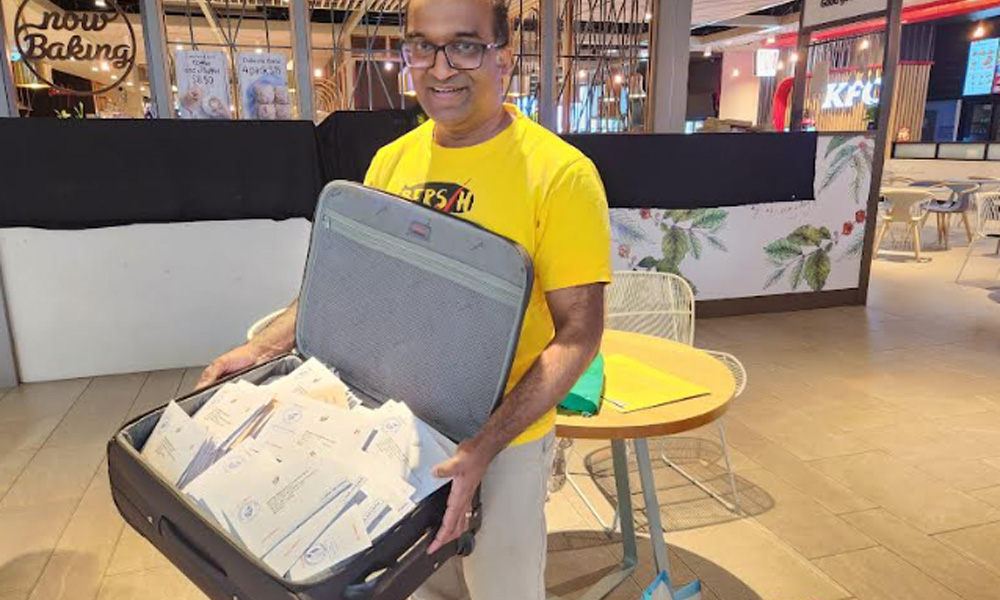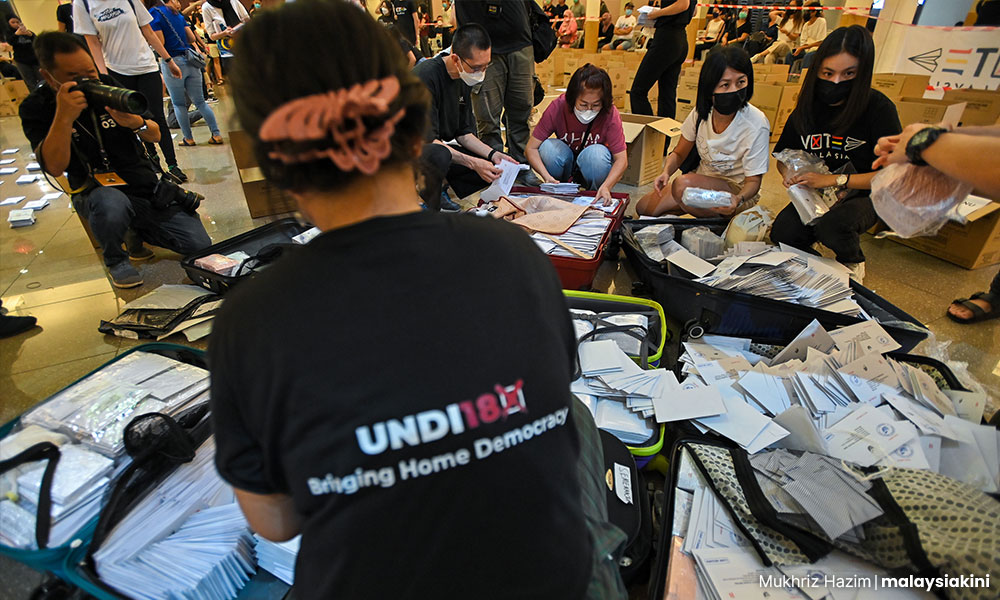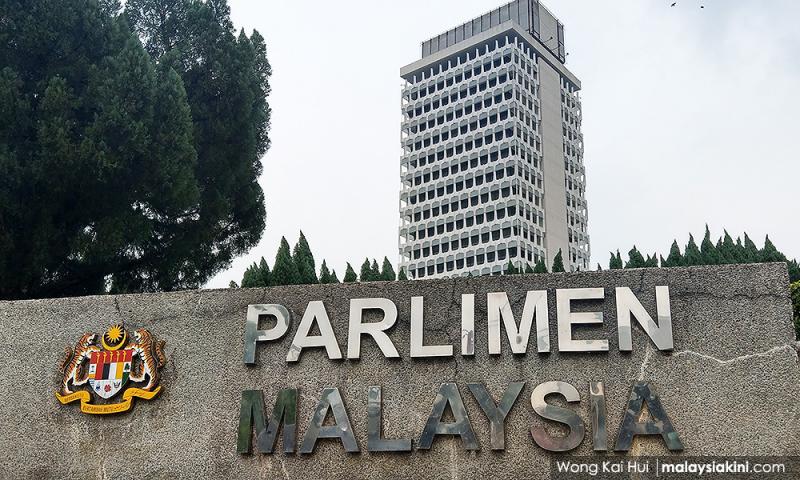MP SPEAKS | Fixed-term Parliament could revamp overseas voting
MP SPEAKS | There has been much chatter online and in coffee shops on the impact of a fixed-term Parliament Act (system) and how Malaysians will benefit from it.
Ideally, a fixed term Parliament Act will prevent a president or a prime minister from waking up one day and having to resign and/or by fait acompli, dissolve Parliament and thrusting the nation into election after election at the whims and fancies of MPs and political parties resulting in chaos and instability.
I cite here Kenya as an example. The Constitution of Kenya requires that a general election of parliamentarians be held on the second Tuesday of August every fifth year.
This fixed term keeps the power of the president and the government in check and at the same time, prevents permanent misrule.
If there is war, the elections may be delayed with a two-thirds majority vote on a resolution in the Lower and Upper Houses.
On an impactful level in Malaysia, a fixed-term Parliamentary Act may just as well be the silver bullet Malaysians, especially Malaysians overseas have been waiting for - an improved overseas electoral system.

Time and time again, Malaysians overseas have been lamenting on the lack of clear step-by-step and up-to-date information on the voting process set in place by the Election Commission (EC).
For example, in GE13, Malaysians were allowed to cast their votes at Malaysian Foreign Missions (MFM) but were unable to do so in GE14.
Apart from that, the short time frame given for the EC to send ballot papers to Malaysians in their respective countries and for them to vote and send the ballot papers back in a short time has proven to be a huge obstacle in the electoral process.
This is also not accounting for the cost of sending a ballot paper back to Malaysia which may cost between €73 (RM376) and €91 (RM469) using the services of a private courier service which may still take three to four days and between 15 to 21 days from the United States and Europe to Malaysia through normal post.
A student on a tight budget may have to make the hard decision of spending that kind of money on his or her vote for meals for at least five days.
Working Malaysians have been residing overseas for decades now and with the increased number of exchange students and those pursuing further studies abroad, paired with automatic voter registration of 18-year-olds and above, more and more Malaysians anticipate elections as a means to send a message on reform, good governance, and for a just Malaysia with a stroke of their pens on their overseas ballot papers.

Transporting postal votes
In GE15, countless Malaysians overseas set up a system among themselves to ferry this priceless cargo back to Malaysia from collection points all over the world from Malaysians who could not afford to post them nor travel home to vote or to the embassies.
These patriotic Malaysians then ferried the ballot papers and upon arrival in KLIA coordinated with local CSOs like Undi18 and Vote Malaysia to be then dispersed to respective states into the hands of the EC Returning Officers.
This precious cargo was treated with utmost care to ensure the voices of Malaysians living abroad were heard in the elections.
But what about Malaysians who did not get their ballot papers in time? Or those who received it on the eve of the elections, or worse, after the polling dates? This conundrum is due to the flawed system we have in place presently.
With technology at our fingertips, the EC also has to be up-to-date and responsible for assisting Malaysians in casting their ballots overseas.

Global Bersih has recommended, among others, that:
Malaysians are allowed to register any time before Parliament is dissolved
A one-week period to validate an overseas postal voter
To publicise any changes at least six months before nomination day
Redesign ballots, forms, and envelopes that will ease the ballot-issuing process
For the EC to work with MFM to identify how long it takes for ballot papers to be sent to overseas locations and to be returned
To extend postal voting for Sabah and Sarawak and also Singapore, Brunei, Kalimantan, and Southern Thailand
To use two-factor or three-factor authentication to enable Malaysians to register online as overseas postal voters
For EC to provide a reason as to why an overseas postal registration is rejected
For the MFMs to be trained to engage with overseas Malaysians to offer unbiased information and voter privacy
To permit non-Malaysians to act as witnesses on postal ballot documents and allow postal voters to download and print PDF versions of postal voting documents

All in all, the EC must take accountability for the whole process. As of Oct 9, 2022, the EC recorded 21.17 million eligible voters, an addition of over 6.23 million new voters.
Therefore, the EC must be serious about heeding the call, proposals, and suggestions by the Parliamentary Special Select Committee on Human Rights, Election, and Institutional Reform on electoral reform particularly on overseas electoral processes.
While time is on our hands, yet we do not have much of it, all stakeholders must prioritise the fruition of the recommendations come GE16 and, before that, the Sabah state election.
A fixed-term parliamentary system will not only create an enlightened Malaysian society that is aware and understands how the Malaysian parliamentary system works, but more importantly also for the millions more Malaysians living and working overseas to ease their voting process abroad.
TERESA KOK is the Seputeh MP and DAP a vice-chairperson.
The views expressed here are those of the author/contributor and do not necessarily represent the views of Malaysiakini.
RM12.50 / month
- Unlimited access to award-winning journalism
- Comment and share your opinions on all our articles
- Gift interesting stories to your friends
- Tax deductable
